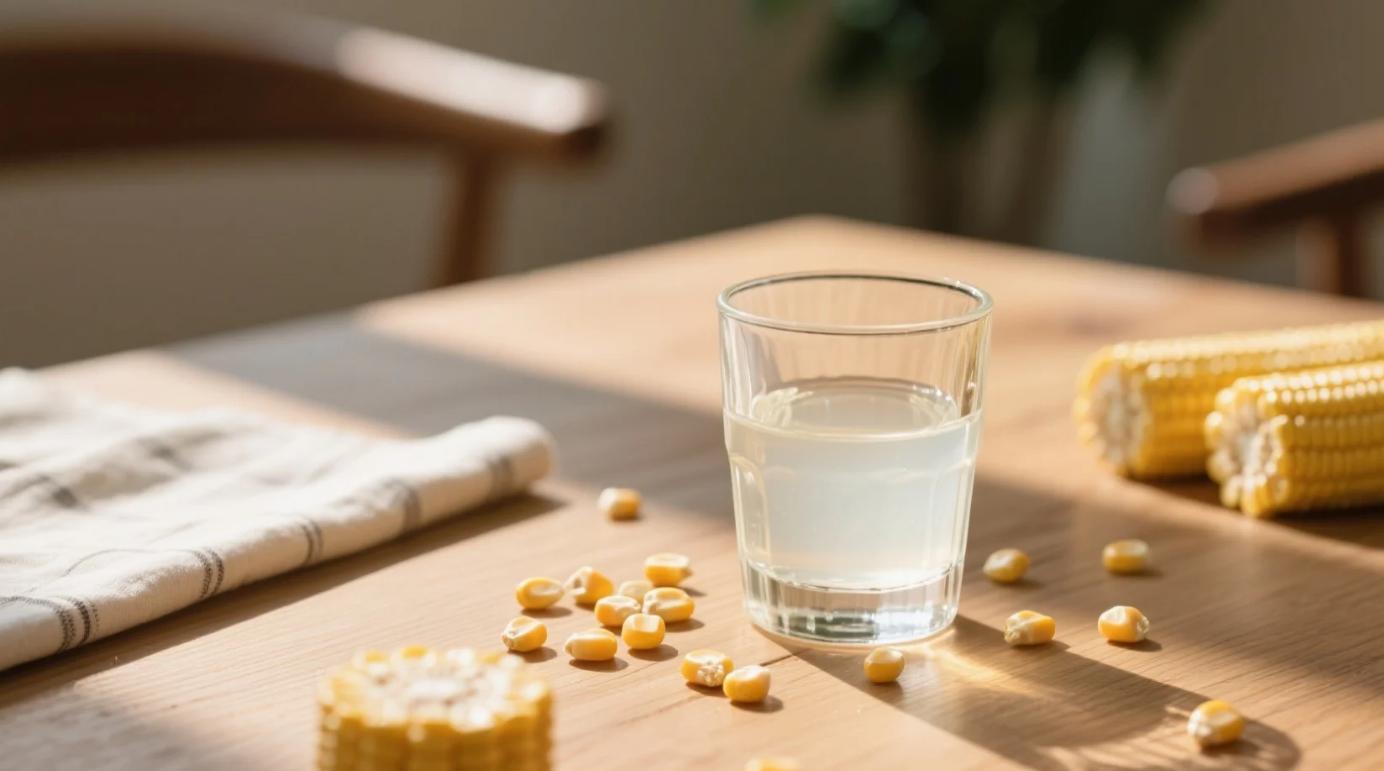The Basics: What’s in a Name?
At first glance, sugar syrup and glucose syrup seem interchangeable. Both are viscous, sweet liquids used in desserts, beverages, and processed foods. But their differences—from composition to culinary roles—are as stark as honey vs. molasses. Let’s break down why organic glucose syrup is gaining traction as a cleaner, more functional alternative.

Chemical Composition: The Science of Sweetness
Sugar Syrup
- Primary Ingredient: Sucrose (table sugar), a disaccharide of glucose + fructose.
- Source: Made by dissolving refined cane or beet sugar in water.
- Sweetness Level: 100% (baseline for sweetness comparisons).
Glucose Syrup
- Primary Ingredient: Glucose (dextrose), a monosaccharide derived from starch hydrolysis.
- Source: Traditionally from corn, wheat, or potato starch. Organic glucose syrup uses non-GMO crops like organic corn.
- Sweetness Level: 60-70% (less sweet than sucrose).
Key Difference: Sugar syrup = fructose + glucose | Glucose syrup = pure glucose chains.
Functional Differences: Why Chefs and Brands Choose Glucose Syrup
| Property | Sugar Syrup | Organic Glucose Syrup |
|---|---|---|
| Sweetness | Intensely sweet | Mild, neutral sweetness |
| Hygroscopicity | Attracts moisture (causes sogginess) | Prevents crystallization (keeps treats chewy) |
| Thermal Stability | Caramelizes quickly (burns easily) | Withstands high temps (ideal for hard candies) |
| Texture | Adds crispness (e.g., spun sugar) | Adds chewiness (e.g., marshmallows) |
| Shelf Life | Shorter (prone to recrystallization) | Longer (maintains smooth texture) |
Culinary Winner: Glucose syrup’s versatility makes it irreplaceable in professional baking and confectionery.
Health Impact: Is Organic Glucose Syrup “Better” Than Sugar?
Metabolism Matters
- Sugar Syrup: Fructose in sucrose is metabolized by the liver, linked to fatty liver disease and insulin resistance in excess.
- Glucose Syrup: Pure glucose spikes blood sugar rapidly (high GI ≈ 100) but is metabolized by every cell for energy.
Organic Advantage:
- No pesticide residues (common in non-organic corn-derived syrups).
- Free from GMOs and synthetic processing aids like hydrochloric acid.
But Both Are Still Sugars:
- Neither offers vitamins or minerals.
- Overconsumption of either contributes to obesity and diabetes.
Hidden Risks in Conventional Syrups
- Sugar Syrup: Often sourced from GMO sugar beets sprayed with glyphosate.
- Glucose Syrup: Non-organic versions may contain traces of heavy metals (from acidic starch hydrolysis) or high-fructose blends.
Why Organic Glucose Syrup Shines: ✅ Uses enzymatic hydrolysis (cleaner than chemical methods).
✅ Made from identity-preserved organic crops (no cross-contamination).
✅ No artificial preservatives or bleaches.
When to Use Which Syrup: A Practical Guide
Reach for Sugar Syrup If…
- You need intense sweetness (e.g., cocktails, glazes).
- Crafting delicate decorations like sugar glass.
- Budget-friendly option for home baking.
Choose Organic Glucose Syrup If…
- Making chewy candies, ice cream, or fondant (prevents graininess).
- Formulating “clean-label” products (avoids “high-fructose corn syrup” stigma).
- Managing fructose intolerance (glucose is easier on some guts).
Pro Tip: Replace 30% of sugar syrup with organic glucose syrup in recipes to reduce sweetness while improving texture.
The Sustainability Angle
- Organic Glucose Syrup: Supports regenerative farming (organic cornfields sequester 28% more carbon).
- Conventional Sugar Syrup: Linked to deforestation (e.g., sugarcane in the Amazon).
The Verdict: It’s All About Purpose
While neither syrup is a “health food,” organic glucose syrup offers functional and ethical advantages over traditional sugar syrup. Its lower sweetness, superior thermal stability, and clean processing make it a chef’s secret weapon. For health-conscious consumers, organic versions minimize exposure to GMOs and pesticides—but moderation remains key.
Sweeten smartly. Choose with intention.